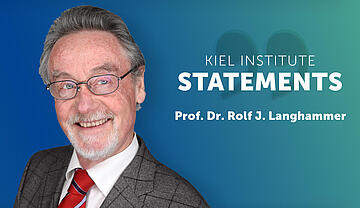Statement
Scholz's China visit falls short of possible outcomes

"During his visit to China, Olaf Scholz mainly wore the hat of the German Chancellor and represented the interests of German industry. However, in his public appearances and according to what is known about the non-public talks, he missed to represent the EU position more strongly. He did not put on the table the use of the trade policy instruments of the EU's single market to counter a surge of massively subsidized Chinese exports. In doing so, he fell short of possible outcomes of his visits, as this would not have harmed German interests, but on the contrary would have increased the willingness of the Chinese to make concessions.
Although aware of China's massive industrial subsidies, Scholz focused his negotiations on the equal treatment of German investors and products in the Chinese market compared to domestic competitors, rather than on the EU Commission's threat to impose anti-subsidy tariffs on Chinese imports.
Scholz primarily followed the arguments of German industry. For example, that German companies in China also benefit from subsidy policies, or that low cost Chinese (upstream) products offer both price advantages for domestic industry and encourage German consumers and processors to buy environmentally friendly goods. In addition, German companies fear retaliation in terms of export restrictions on key raw materials should the EU actually impose import tariffs on China.
These arguments are understandable from a macroeconomic point of view. However, they do not take into account the EU Commission's well-founded concerns about an anticipated surge of Chinese exports into what is currently the only open market in the world, the EU's single market."




